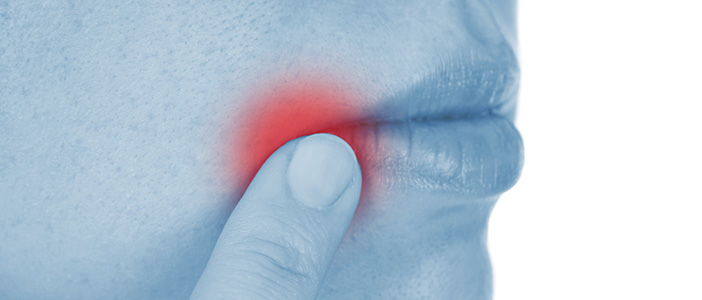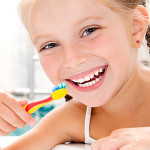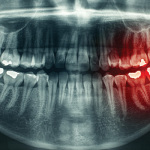Mouth Sores – Stomatitis
Stomatitis: Causes, Symptoms, and Treatments
Stomatitis, a general term for an inflamed and sore mouth, can disrupt a person’s ability to eat, talk, and sleep. Stomatitis can occur anywhere in the mouth, including the inside of the cheeks, gums, tongue, lips, and palate.
Types of Stomatitis
Types of stomatitis include:
- Canker sore: A canker sore, also known as an aphthous ulcer, is a single pale or yellow ulcer with a red outer ring or a cluster of such ulcers in the mouth, usually on the cheeks, tongue, or inside the lip.
- Cold sores: Also called fever blisters, cold sores are fluid-filled sores that occur on or around the lips. They rarely form on the gums or the roof of the mouth. Cold sores later crust over with a scab and are usually associated with tingling, tenderness, or burning before the actual sores appear.
- Mouth irritation. The irritation can be caused by:
-
- Biting your cheek, tongue, or lip
- Wearing braces or another type of dental apparatus, or having a sharp, broken tooth
- Chewing tobacco
- Burning one’s mouth from hot food or drinks
- Having gum disease (gingivitis) or other type of mouth infection
- Having hypersensitivity to certain things, such as foods or medicines
- Having certain autoimmune diseases affecting the mucosal lining of the mouth, such as lupus, Crohn’s disease, or Behcet’s disease
- Taking certain drugs such as chemotherapy, antibiotics,medications used for rheumatoid arthritis, or epilepsymedications
- Receiving radiation as part of cancer treatment
Symptoms of Stomatitis: Canker Sores and Cold Sores
Canker sores:
- Can be painful
- Usually last 5 to 10 days
- Tend to come back
- Are generally not associated with fever
Cold sores:
- Are usually painful
- Are usually gone in 7 to 10 days
- Are sometimes associated with cold or flu-like symptoms
Causes of Stomatitis: Canker Sores and Cold Sores
Canker Sores
Nobody knows what exactly causes canker sores, but many things may contribute to their development, such as certain medications, trauma to the mouth, poor nutrition, stress, bacteria or viruses, lack ofsleep, sudden weight loss, and certain foods such as potatoes, citrus fruits, coffee, chocolate, cheese, and nuts.
Canker sores may also be related to a temporarily reduced immune system because of a cold or flu, hormonal changes, or low levels ofvitamin B12 or folate. Even biting the inside of the cheek or chewing a sharp piece of food can trigger a canker sore.
Canker sores may result from a genetic predisposition and are considered an autoimmune disease; they are not contagious.
About 20% people in the U.S. will have canker sores at some point during their lifetime — women more often than men.
Cold Sores
Cold sores are caused by a virus called herpes simplex type 1. Unlike canker sores, cold sores are contagious from the time the blisterruptures to the time it has completely healed. The initial infection often occurs before adulthood and may be confused with a cold or the flu. Once the person is infected with the virus, it stays in the body, becoming dormant and reactivated by such conditions as stress, fever, trauma, hormonal changes (such as menstruation), and exposure to sunlight.
When sores reappear, they tend to form in the same location. In addition to spreading to other people, the virus can also spread to another body part of the affected person, such as the eyes or genitals.
Treatment for Common Forms of Stomatitis
Mouth sores generally don’t last longer than two weeks, even without treatment. If a cause can be identified, your doctor may be able to treat it. If a cause cannot be identified, the focus of treatment shifts to symptom relief.
The following strategies might help to ease the pain and inflammation of mouth sores:
- Avoid hot beverages and foods as well as salty, spicy, and citrus-based foods.
- Use pain relievers like Tylenol or ibuprofen.
- Gargle with cool water or suck on ice pops if you have a mouth burn.
For canker sores, the aim of treatment is to relieve discomfort and guard against infection. Try the following:
- Drink more water.
- Rinse with salt water.
- Practice proper dental care.
- Apply a topical anesthetic such as lidocaine or xylocaine to the ulcer (not recommended for children under 6).
- Use a topical corticosteroid preparation such as triamcinolonedental paste (Kenalog in Orabase 0.1%), which protects a sore inside the lip and on the gums.
- Blistex and Campho-Phenique may offer some relief of canker sores and cold sores, especially if applied when the sore first appears.
For more severe sores, treatments may include:
- Lidex gel
- Aphthasol, an anti-inflammatory paste
- Peridex mouthwash
If you seem to get canker sores often, you may have a folate or vitamin B12 deficiency. Talk with your doctor about being tested for these deficiencies.
Anti-inflammatory drugs such as corticosteroids (including prednisone) are the most effective treatment for canker sores, as they will reduce swelling and pain. They are also effective for cold sores after the sore has been present for three to four days, because at that point the virus has disappeared and only the inflammation remains.
Not all people can take certain types of anti-inflammatory drugs. For example, if prednisone is given to people with diabetes, their bloodsugars will go up. Talk to your doctor about any health conditions you have before starting a new medication.
There is no cure for cold sores. Treatment includes:
- Taking a dose of valacyclovir (Valtrex) at the first sign of an attack
- Coating the lesions with a protective ointment such as an antiviral agent (for example, 5% acyclovir ointment)
- Applying ice to the lesion
Taking L-lysine tablets may also help, as might antiviral mediations that a doctor prescribes. Some experts believe that these drugs shorten the time that the blisters are present.
Not all sores are harmless. Schedule an appointment with your doctor if your mouth sores haven’t healed within two weeks.
WebMD Medical Reference
Original Article featured on WebMD
Looking for an orthodontist in Beaverton, Oregon? Biermann Orthodontics is a cutting-edge orthodontic practice that serves Beaverton and Molalla, OR, and focuses on providing world-class customer service and efficient treatment. We strive to create stunning smiles in the shortest amount of time without ever sacrificing quality.
Visit our Locations page to find a clinic near you, or schedule an initial consultation.
Biermann Orthodontics
503-690-0722
17885 NW Evergreen Parkway, Suite 200
Beaverton, OR 97006



